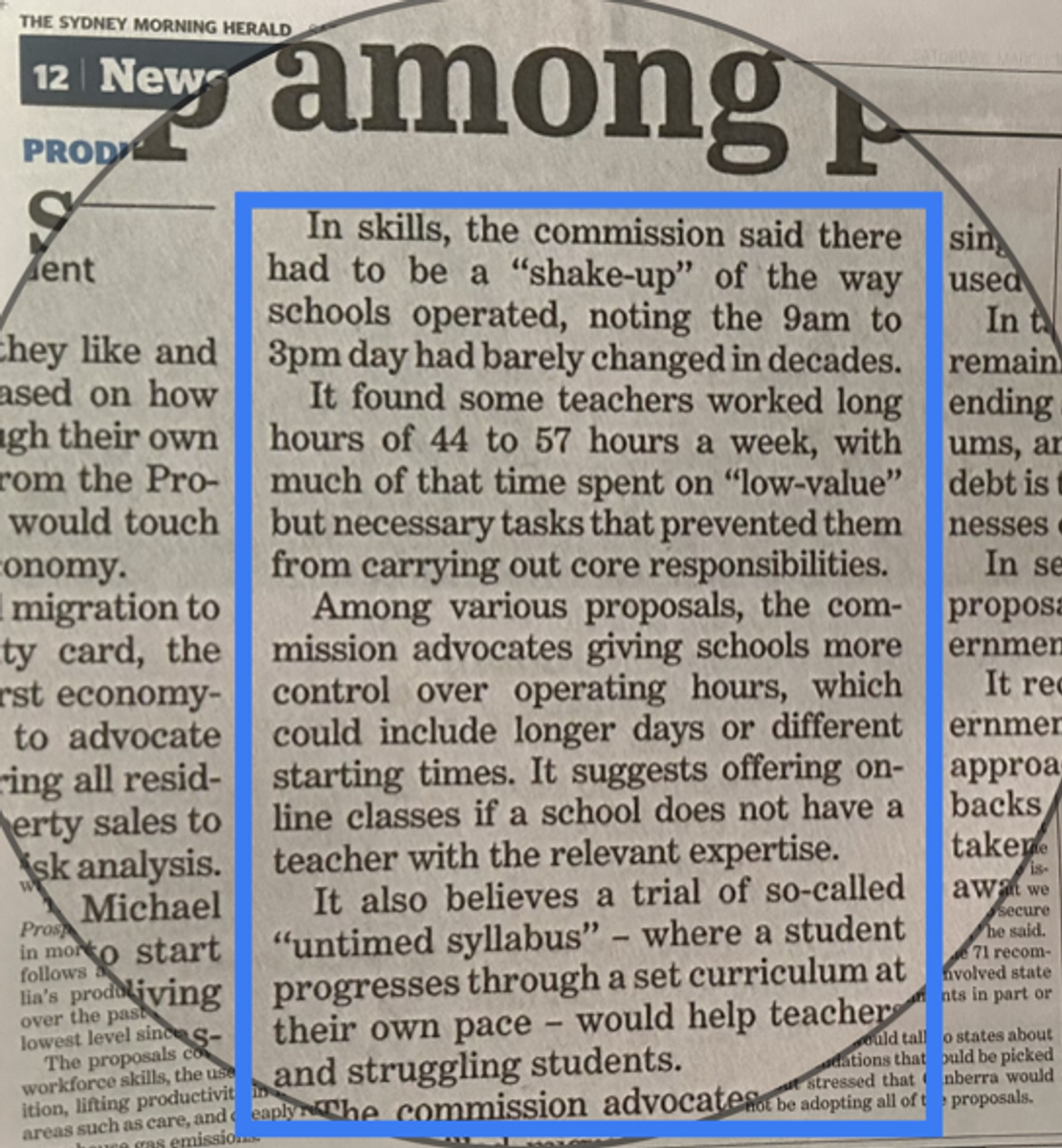Principal's Address
Mr Greg Miller

Principal's Address
Mr Greg Miller
Dear Chevalier Community,
Over the last few weeks staff at Chevalier have been reflecting on the current model of education, one which was designed in, and for, an industrial world. In the industrial era from approximately 1760-1840, there was a demand for a literate and numerate workforce to operate the new machines and factories. Literacy and numeracy are still the foundational bedrocks for a good education.
The goal of an industrial education system is to produce a large number of workers with the same basic skills, knowledge, and attitudes needed to work in factories and other industrial settings. The key features of an industrial education system emphasise standardisation and uniformity where all students learn the same material, at the same pace, and in the same way. All this is determined by one’s date of birth, with limited attention given to individual strengths, interests, motivations and passions.
Times are now different and how we view our use of time needs examination. In his article Undoing Academic Time, Ira Socol argues that
“Time is the first technology”. More specifically, he writes, “Time is the most controlling of all the structures which define ‘school’. Learning is, of course, timeless. It exists in its own temporal zone, unique to each individual, and different for each thing “learned.” But school is all about the clock.”
It is a well-known fact that by the time an Australian child turns 15, they will have spent 11,000 hours in the school classroom. This can be thousands more than their international peers – yet there's little evidence showing the extra time is productive. Recently, various governments across the world, including Australia, have highlighted the need to address work hours as part of ongoing dialogue about a four-day week. Further to this, and with the impact of Covid-19, flexible ways of working have become an increasing reality for many Australians beyond education.
There are increasing calls for schools to use time differently. On 17 March 2023, and article titled, ‘School hours, migration system and climate among recommendations to make us work better’ appeared in the Sydney Morning Herald. It referenced a recent Productivity Commission Report and there were a few paragraphs which jumped out at me.


.


We have time anchored approaches to learning in schools and how we use our time reflects our priorities. The narrative outlined above has prompted Chevalier staff to consider what is the best use of time for our students. As part of our review of hours spent in the classroom, we identified that almost all subject hours are above NESA (New South Wales Education Standards Authority) requirements; some subjects considerably so.
Is an oversubscribed amount of subject hours the best use of time for student learning? Is there something better we could offer students instead of additional time for subjects?
We live in a VUCA (Volatile, Uncertain, Complex and Ambiguous) world which requires a more flexible, adaptable and personalised approach to schooling, one that emphasises capabilities including, but not limited to, creativity, collaboration, critical thinking, problem solving and lifelong learning agency. We are obligated to ensure learning is relevant, real world, and provides a solid foundation for the world which awaits our students. As part of our ongoing inquiry into ‘Best Use of Time’ at Chevalier we have confirmed that we need to schedule learning which:
On another matter, I trust that with the conclusion of Term 1, 2023 all families find a moment to consider the meaning of Christ’s Resurrection as part of the Easter season. The resurrection of Christ symbolises the triumph of hope over despair. It represents the belief that Jesus, who was crucified and buried, rose from the dead on the third day signifying the promise of eternal life and a reminder of God's love and mercy.
Happy Easter
Mr Greg Miller
Principal